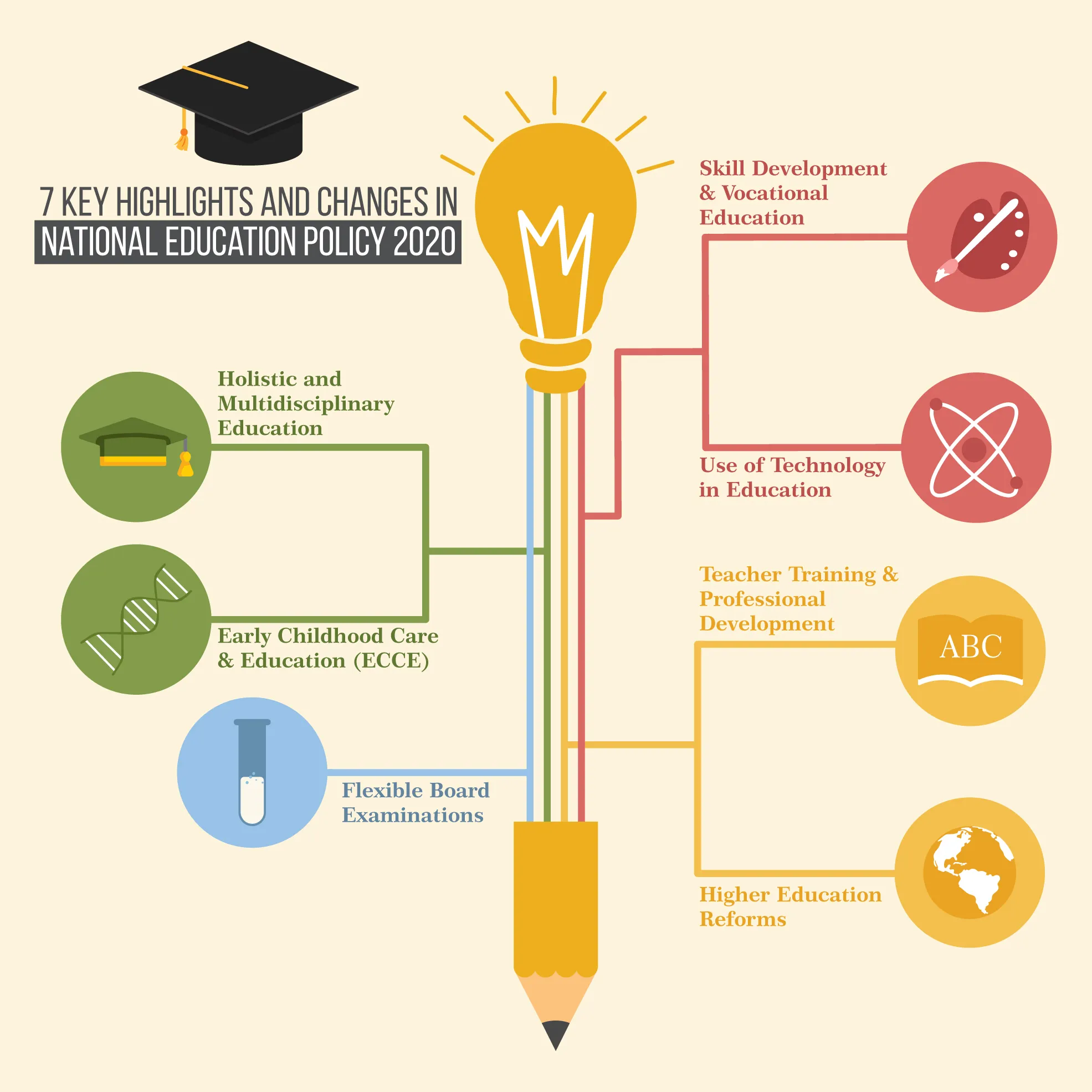
Introduction:
The National Education Policy 2020 (NEP 2020) introduces several key highlights and transformative changes that aim to revolutionize the Indian education system. In this blog, we will explore the significant highlights and changes brought about by NEP 2020. These changes encompass various aspects of education, including school education, higher education, teacher training, assessment, and the integration of technology. Let's dive into the key highlights and changes in NEP 2020.


Holistic and Multidisciplinary Education:
NEP 2020 emphasizes a holistic and multidisciplinary approach to education, promoting the integration of arts, humanities, sports, and vocational skills alongside academic subjects. This approach nurtures the overall development of students, fostering creativity, critical thinking, and problem-solving skills.
Early Childhood Care and Education (ECCE):
NEP 2020 recognizes the importance of early childhood education and advocates for the universalization of quality ECCE for children aged 3-6 years. It focuses on play-based and activity-based learning to provide a strong foundation for children's cognitive, social, and emotional development.
Flexible Board Examinations:
NEP 2020 proposes significant changes in the board examination system. It aims to shift from a high-stakes, one-time examination to a more flexible and comprehensive assessment model that encourages critical thinking, conceptual understanding, and application of knowledge.
Skill Development and Vocational Education:
The policy emphasizes the integration of skill development and vocational education into the mainstream curriculum. NEP 2020 seeks to bridge the gap between education and employability by providing students with practical skills and hands-on training aligned with industry requirements.
Use of Technology in Education:
NEP 2020 recognizes the role of technology in enhancing the teaching-learning process. It promotes the integration of technology in education through the establishment of digital infrastructure, the development of digital content, and the utilization of online platforms for learning and assessment.
Teacher Training and Professional Development:
The policy emphasizes the importance of teacher training and professional development to enhance the quality of education. NEP 2020 proposes the establishment of a robust framework for continuous professional development, ensuring that teachers are equipped with the necessary skills and knowledge to deliver effective and learner-centric education.
Higher Education Reforms:
NEP 2020 introduces significant reforms in higher education, including the establishment of multidisciplinary institutions, the promotion of research and innovation, flexible undergraduate programs, credit-based systems, and the incorporation of vocational education and internships into the curriculum.
Conclusion:
The National Education Policy 2020 brings forth key highlights and transformative changes that aim to shape the future of education in India. It emphasizes holistic education, early childhood care, flexible assessments, skill development, integration of technology, teacher training, and higher education reforms. These changes are designed to create a learner-centric, inclusive, and future-ready education system. By embracing these highlights and changes, India is poised to provide quality education that equips students with the necessary skills, knowledge, and competencies to thrive in the 21st century.